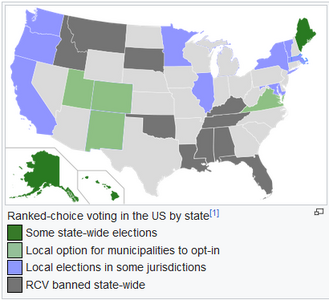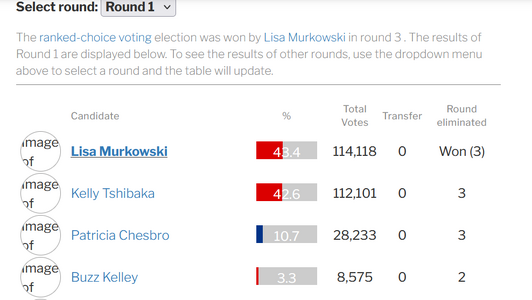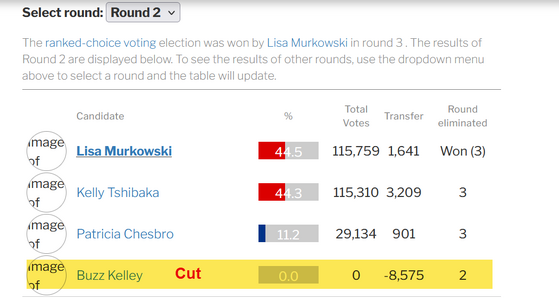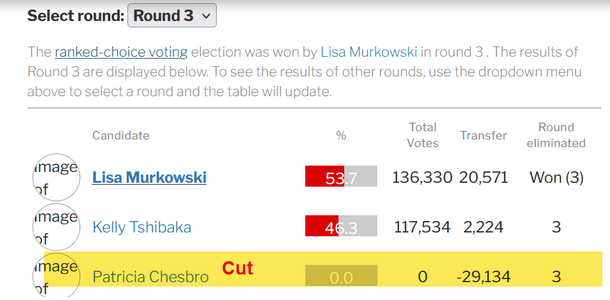The length of terms are written into the Constitution and cannot be easily changed. There is some wisdom to how they are designed.
The problem really is gerrymandering and how computers are used to pick voters to make seats not competitive. One of the reasons that we have such an ineffective Congress is that too many members are not afraid of losing their seat.
As I said, "keep the terms the same". The length of terms = 2 years for Congress, 6 years for Senate. We were talking about term
limits, weren't we? Not the length of each individual elected term. Thus, 12 for the same number of years served in either house, is my suggestion, which equals 6 House terms or 2 Senate terms. This could probably be done with legislation, but I'm not sure. It won't happen, I know.
Or "You only have to vote one time" voting.
The US system was designed before parties. The Federalists vs Republicans and then later the "Free Staters" vs the Slave Staters" really ruined the good intentions of the representative democracy that the Founders intended.
The parties have had 250 years to design ways to game the system. The primary system is one of those methods to game the system. The reason that we have House members who sleep with underage girls but still get 70% of the vote, the reason that we have certifiable nutcases who believe in space lasers, the reason that we have members with extremist views on foreign policy and the reason that we have too many showhorses and not enough workhorses is that the primary system favors extremist candidates.
I would love not to have to vote in a primary election and then vote again in a general election... much less all of the runoff and special elections. Just put them all on the ballot and let everyone vote for the first choice and their second choice. Whichever candidate gets the most people voting for them wins. That system would help cut down the number of extremists and it would get us more middle-of-the-road winners.
This is different from ranked choice voting. In a presidential election, you could have several dozen names listed. You would never get a majority, which would necessitate a runoff. Unless you want to elect a president with a small plurality.
Ranked choice voting by definition means voting more than one time, at least it does here. There's the "primary" vote, which is the ranked choice vote to select the candidates. You vote for the people you like, for example, running for mayor (there were 4 in our last election). When you go to the polls, you only get one ballot with everyone listed, no parties shown, and you can vote for as many people as you want (I voted for 2). Then the general election is basically a runoff between the top two and no one else. Whoever gets the most votes wins. A tie is extremely unlikely, and a majority vote is guaranteed.
Non-partisan voting is a better name IMO, because just the name "ranked choice" is confusing to almost everyone I talk to. They're against it because they don't understand what it means. When I explain the process as non-partisan voting, most people are for it.


























